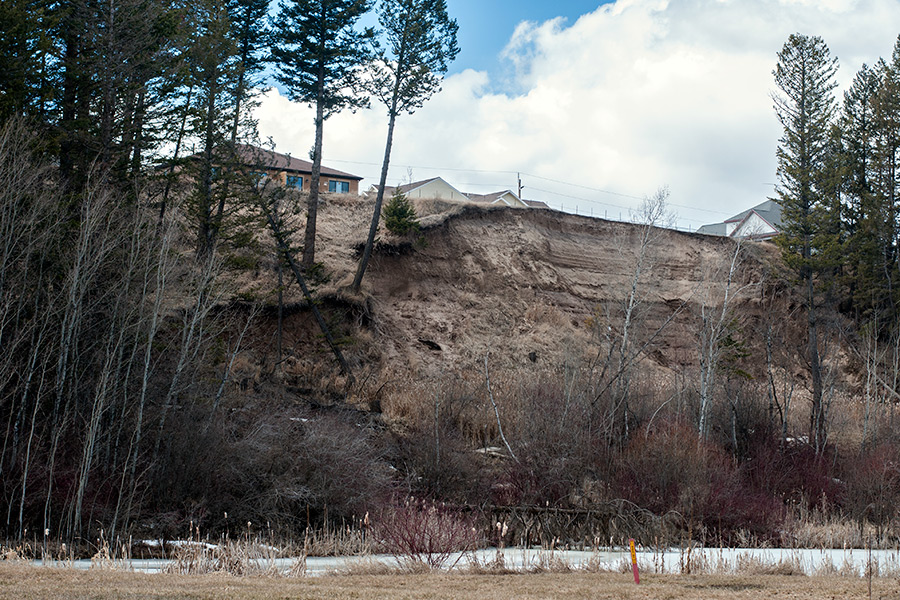FCEDA Donates Gravel to Whitefish Stage Bank Stabilization Project
Further work on the rail park is slated to begin in spring of 2017
By Beacon Staff
Calling it a “win-win” situation, Flathead County Economic Development Authority is donating roughly 18,000 cubic yards of gravel and dirt to help stabilize a collapsed hillside near Whitefish Stage Road.
The organization announced that it was donating roughly $180,000 worth of gravel from the Glacier Rail Park site to a group of nearby homeowners seeking to build up and stabilize the deteriorating bluff that threatens seven homes on Whitefish Stage Road. The rail park is part of a redevelopment project for the core area of Kalispell.
Schellinger Construction Company from Columbia Falls is slated to start moving the soil this week. Mark Cyr, project manager with Schellinger Construction, is confident that the work will not only repair the erosion damage but will also alleviate future concerns. He expects construction to last approximately 45 days.
The Whitefish Stage Slope Stabilization project, organized by local residents in 2010, seeks to mitigate the sloughing of a hillside above the residential Village Greens subdivision and just below another set of houses.
In 2014, a $400,000 Federal Emergency Management Agency grant was awarded to Flathead County on behalf of the project, but the project was delayed after the commission voted to terminate the grant. Residents were upset about the vote after the county had agreed to work with them and helped them achieve the grant. The commission cited concerns about being held liable if something went wrong in the project. A Flathead County District Court judge ruled that the commission must move forward with the grant.
FCEDA saw the need for bank stabilization as a way to help the residents while also removing the large amount of gravel and soil at the rail park, which is preparing to break ground.
“The donated soil not only decreases the project cost but leveraging the value of the soil was instrumental in receiving additional overrun funding from FEMA,” Scott Gearhart, one homeowners instrumental in the process, said.
Kim Morisaki, project manager for FCEDA, said removing the excess dirt and gravel will also lower the overall cost of developing the rail park, “creating a win-win for all parties.”
FCEDA has completed the environmental assessment for the entire rail park and core area redevelopment project, including removing railroad tracks in downtown, and has submitted it for review and approval. Morisaki said she expects it to be approved this fall, which will allow the organization to go out for bids to begin construction. Further work on the 43-acre rail park is slated to begin in spring of 2017.